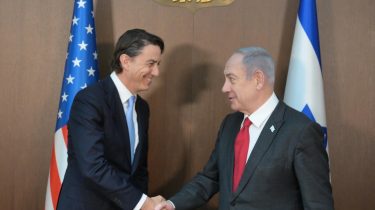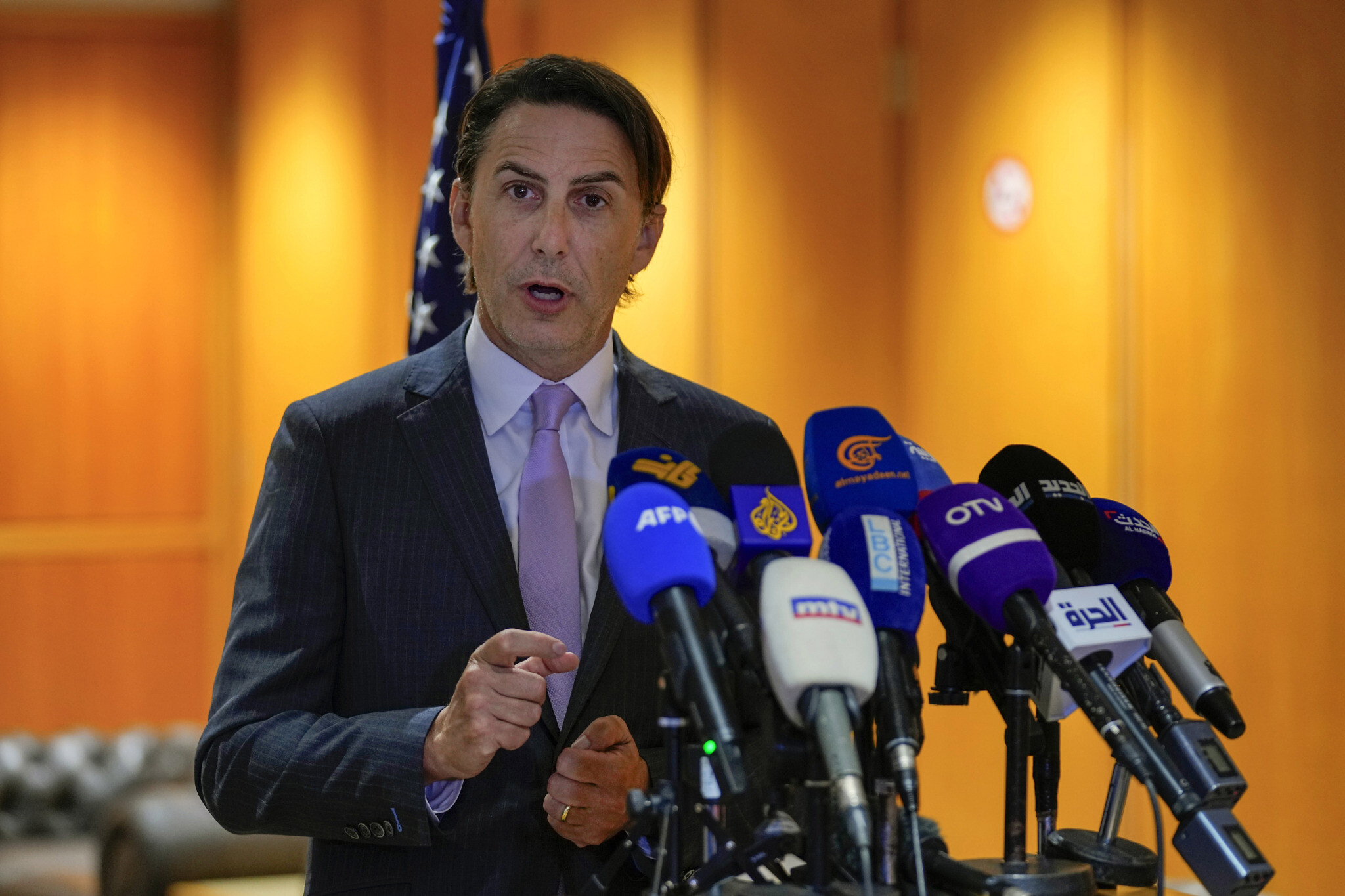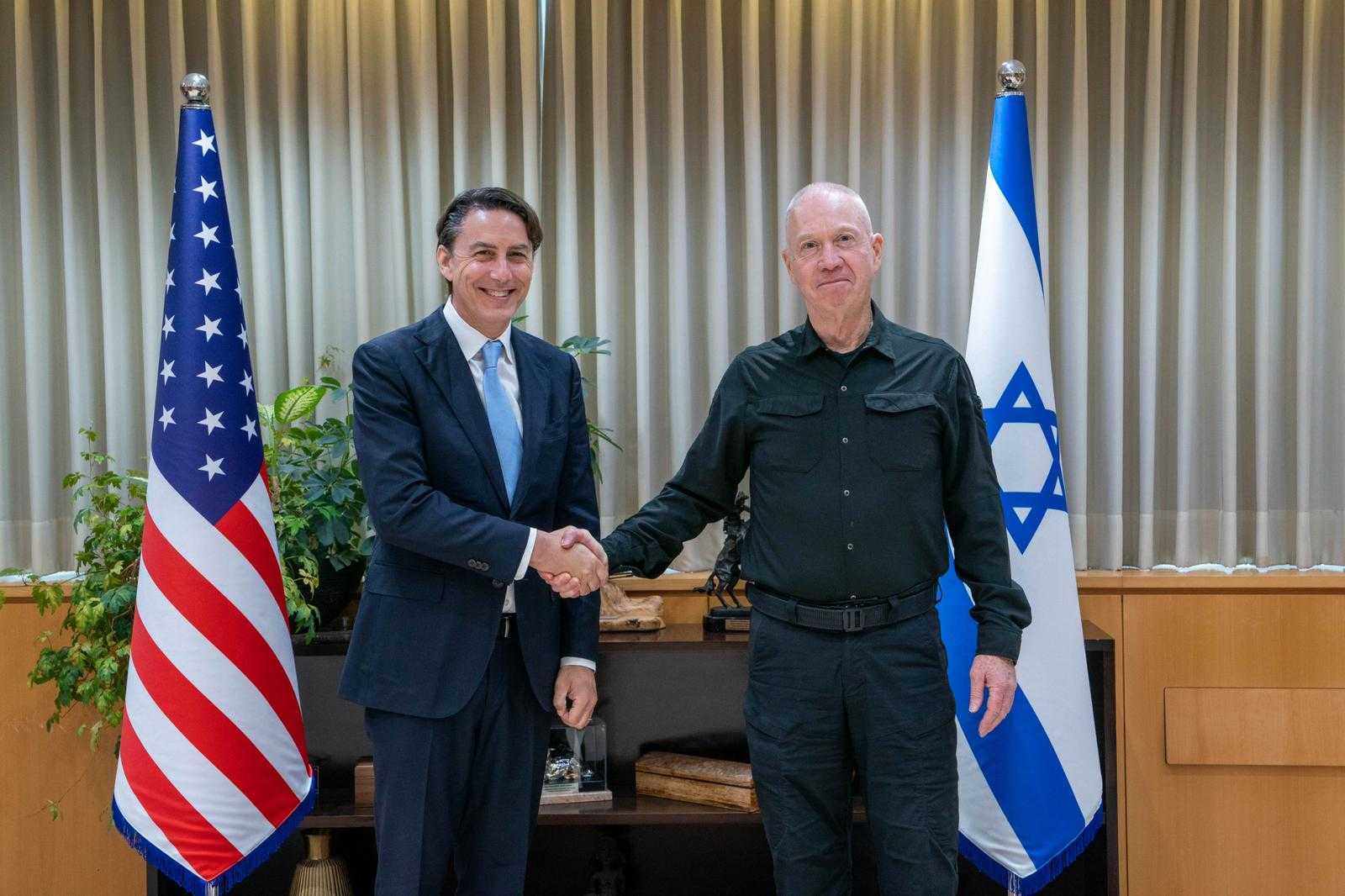Sinwar Sends Message to Hezbollah: Hochstein Arrives in Israel on Emergency Basis

According to the Lebanese network Al-Nahar, yesterday Hezbollah began calling on residents of border towns in southern Lebanon to evacuate in connection with upcoming large-scale Israeli operations, increased threats and preparations for a potential war. In addition, the American envoy Amos Hochstein urgently arrived in Israel.
Israel, Lebanon and Hamas: Hochstein’s diplomatic moves and acknowledgement of Hezbollah support
According to the publication, the main goal of Amos Hochstein’s mission is to persuade Israel to refrain from launching a military operation against Lebanon. Lebanese media report that it is not yet clear whether Hochstein will visit Beirut or whether his visit will remain one-sided. Official authorities have not yet provided any confirmation or additional information on this issue.
At the same time, several Lebanese and pan-Arab media outlets circulated a message addressed to Hezbollah Secretary General Hassan Nasrallah from Hamas leader Yahya Sinwar. In the letter, Sinwar expressed gratitude to Nasrallah for his condolences on the death of Ismail Haniyeh in Tehran. Sinwar noted that the current war will go down in history as “one of the most honorable battles of our people.”
He also expressed gratitude to Nasrallah for the support and solidarity with the Gaza Strip during the current fighting. Sinwar stressed that Hamas intends to continue supporting the resistance until “the occupiers are expelled from Palestinian land and a Palestinian state is established.” In his message, Sinwar noted that the current conflict has become a landmark stage in the Palestinian struggle for their rights and independence. He noted that Hezbollah’s support in this difficult time significantly strengthens the morale of Hamas fighters and confirms the strong ties between the two groups.

Sinwar also stated that this cooperation and mutual assistance not only strengthens their strategic positions, but also their confidence in achieving the ultimate goal of liberating Palestine from foreign control. He expressed hope that the unity and determination of both sides will help achieve success in their struggle and contribute to the speedy realization of the dream of an independent Palestinian state.
The support received from Hezbollah is seen as an important element in the context of the current military actions. Sinwar noted that these actions strengthen the strategic partnership between the groups, which in turn helps strengthen their positions in the international arena and strengthen ties among Arab countries.
In addition, Sinwar called for further strengthening of this alliance and mobilization of efforts to achieve long-awaited peace and justice in the region. He expressed confidence that the joint efforts of Hamas and Hezbollah will help them achieve the goal for which they are fighting and will help create conditions for a peaceful and just existence for the Palestinian people.
Hezbollah and Diplomacy: Heightened Tensions and Impact on Peace Processes
Hezbollah’s diplomatic efforts and solidarity have a profound impact on the current regional situation, determining the dynamics of the conflict. In the context of increasing tensions, Hezbollah is actively involved in supporting its allies, strengthening ties and influencing political processes in the region. Their diplomatic activity includes both support for Palestinian groups and strategic moves to influence Israel and other key players.

Hezbollah’s recent actions, such as expressing solidarity with Hamas and actively engaging in the fight against Israel, demonstrate their desire to strengthen regional alliances and demonstrate cohesion. This solidarity, while strengthening the position of their allies, also complicates diplomatic efforts to resolve the conflict, creating additional risks and obstacles.
The complexity of the situation is increased by multiple factors: Hezbollah’s support bolsters the morale of its allies and creates new challenges for peace talks. Hezbollah thus plays a dual role, providing both opportunities for diplomatic progress and creating complications that slow or complicate the peace process.
